Brexit: What preparations are being made for a no-deal?
- Published
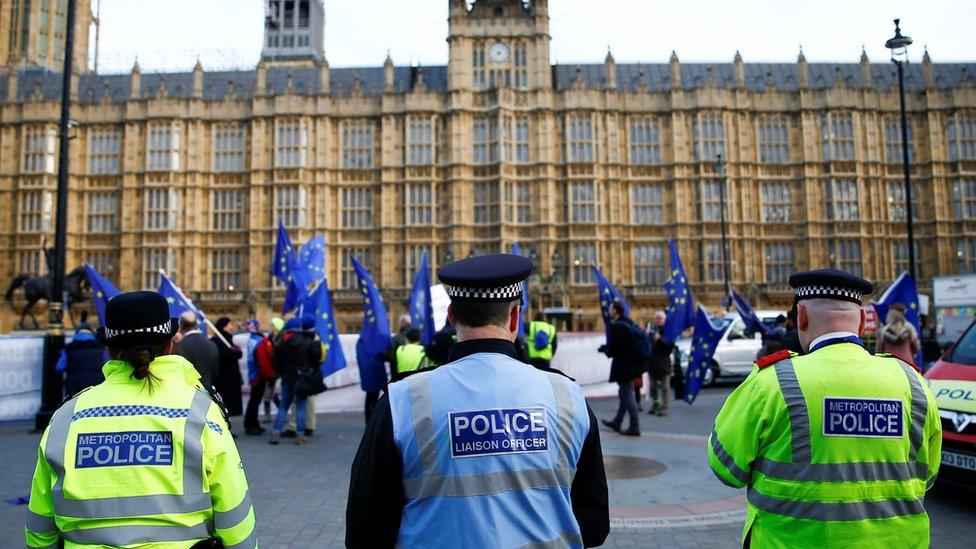
Police, the government, the Border Force and ferry companies are among those preparing for a no-deal Brexit
It could become the UK's biggest peacetime emergency in almost a century.
Unless a withdrawal agreement is approved (or Article 50 is delayed), at 23:00 GMT on 29 March the UK will leave the European Union with no negotiated exit - and in a second everything will change.
Suddenly, British goods going to the EU will be subject to duty (a payment, for example on imports and exports), and will need to be checked for compliance with things like sanitary regulations.
Goods arriving in the UK from the EU could face checks too, though the government has said it will not do that straight away, partly because it doesn't have the infrastructure.
The rules around things like fishing rights, air traffic and nuclear regulation will all change in the blink of an eye too.
The effect is likely to be a severe slowdown on the critical Dover-Calais ferry and Channel Tunnel routes, as well as unpredictable delays at airports.
Critical incident declared
An army of civil servants has been working on the problem since the EU referendum.
At the time of writing, about 4,000 have been moved into positions where they are preparing for the no deal scenario. As we get closer, another 5,000 will be transferred across to help.
On the night of Brexit, the government is expected to declare a "critical incident" and to start operating 24 hours a day, seven days a week in a "command and control" mode.
The Cobra emergency committee will meet at the Cabinet Office as ministers sit down to tackle the unpredictable effects of leaving the EU without a deal.
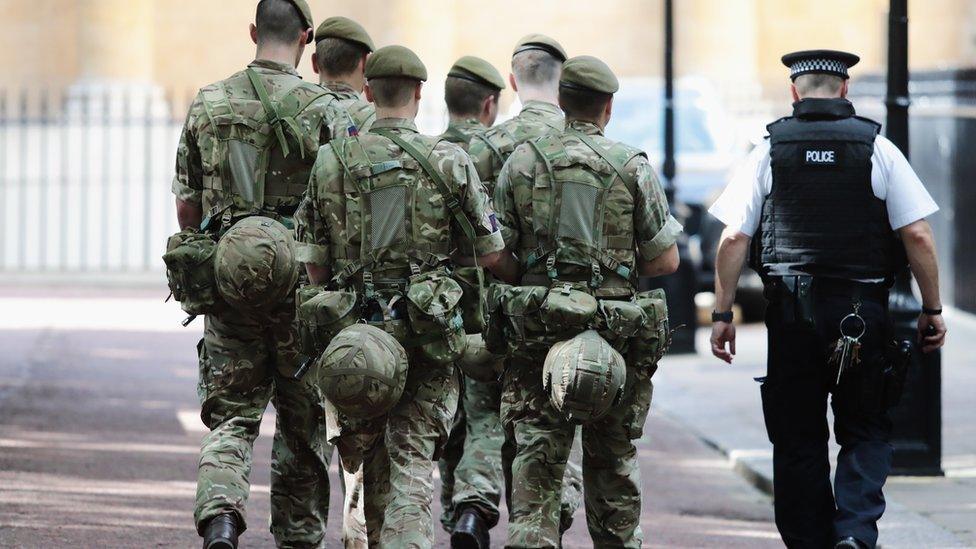
The Ministry of Defence has promised to make 3,500 service personnel available to help. About 10% of these will be reservists. An order laid before Parliament under the Reserve Forces Act says they can be called upon from 10 February.
There are 14 military planners already working in other Whitehall departments.
But despite all that, the chief executive of the civil service, John Manzoni, still concedes that a no-deal Brexit could be a "bit bumpy".
Transport through Kent
The biggest concern is that lorry traffic across the English Channel through Dover and the Channel Tunnel terminal near Folkestone will grind to a standstill.
To manage that, Highways England, Kent County Council and Kent Police have come up with Operation Brock - a plan for parking up to 13,000 trucks who could be left waiting to get through.

The first 2,000 will park on the southbound carriageway of the M20 between junctions eight and nine, 6,000 more will be moved to Manston Airport, and if that's not enough then the M26 will be used to hold another 5,000.
Up to 90 lorries assembled at Manston airfield as part of a no-deal Brexit exercise
The government has given Kent County Council £28.8m to improve Manston, to strengthen the roads around it (such as the A249, A256 and the A299), and for new signs and traffic signals,
This way it is hoped that the county of Kent will not itself stop functioning, as happened during a strike at Calais in 2015.
The government expects there will be "significantly reduced access across the short straits" for up to six months.
The government has also announced temporary measures allowing lorries arriving in the UK to drive straight off ferries and Channel Tunnel trains without making customs declarations in the event of no-deal.
The guidance for importers and hauliers says companies would be able to file a simplified form online in advance and pay duty later.
Other shipping routes
If Dover and Folkestone suddenly become slow and unpredictable ways of getting goods - some of them critical, like medical supplies - in and out, the government is hoping other routes will take more of the traffic.
Saying "a situation of extreme urgency exists", the Department for Transport is paying a total of £107.7m to three ferry companies to run extra ships.
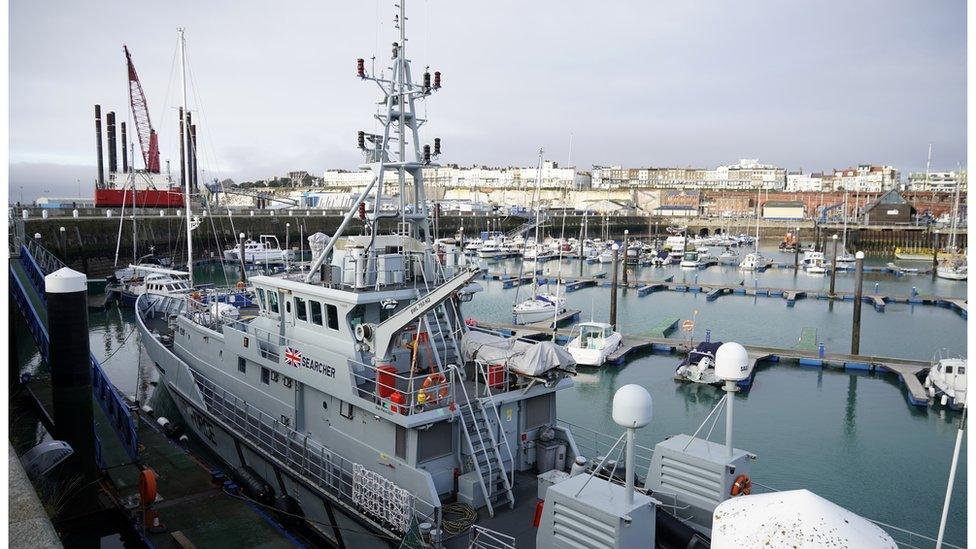
Ramsgate harbour needs to be dredged to clear access for larger ships
Brittany Ferries will increase sailings for six weeks on the Portsmouth-Le Havre, Poole-Cherbourg and Plymouth-Roscoff routes.
DFDS will increase the number of crossings on some of its routes.
A new company - Seaborne Freight - had been asked by the government to run ships between Ramsgate and Ostend, but the contract was later scrapped. The government said it had become clear that Seaborne was not going to be able to fulfil its side of the contract, and it is looking for another company to run additional freight ferries.
Port companies such as Associated British Ports (ABP) have been improving the infrastructure at ports away from Dover in anticipation of increased traffic.
Medicines
The Department of Health (DoH) has developed extensive contingency plans, and has started to stockpile six weeks' worth of prescription-only and pharmacy medicines.
It has signed £1m of contracts for refrigerated storage for approximately 5,000 pallets of medicine and another £9m for what is called "ambient storage", that is storage at room temperature.
It has also been agreed in Whitehall that medicines and medical products would be given priority on freight routes, though it's not clear how that would work.
The DoH has also made plans to air freight items like medical radioactive isotopes (used in radiotherapy and diagnostic tests) that have a very short shelf-life.
And it has recognised that some devices with short lead times - like stents and implants that come in many different shapes and sizes - cannot be easily stockpiled.
So, the department is setting up a logistics hub in Belgium to help out companies who may face disruption.
Suppliers are being asked to try to make their own arrangements - and to buy tickets for the extra ferry capacity that the government has secured. But if these efforts fail, they will be able to use what is being called the "Dedicated Shipping Channel," which would aim to get the devices from the hub into the UK within three days.
Food
The same problem arises when it comes to food.
Food manufacturers have been stockpiling ingredients, but there is starting to be a shortage of warehouse space - both ambient and chilled.
Not many people predict a severe food crisis (the UK is about 60% self-sufficient on food), but it is likely that some fresh foods that come in on short timetables from the European Union will become scarcer.
Once again, the effects are likely to be unpredictable.
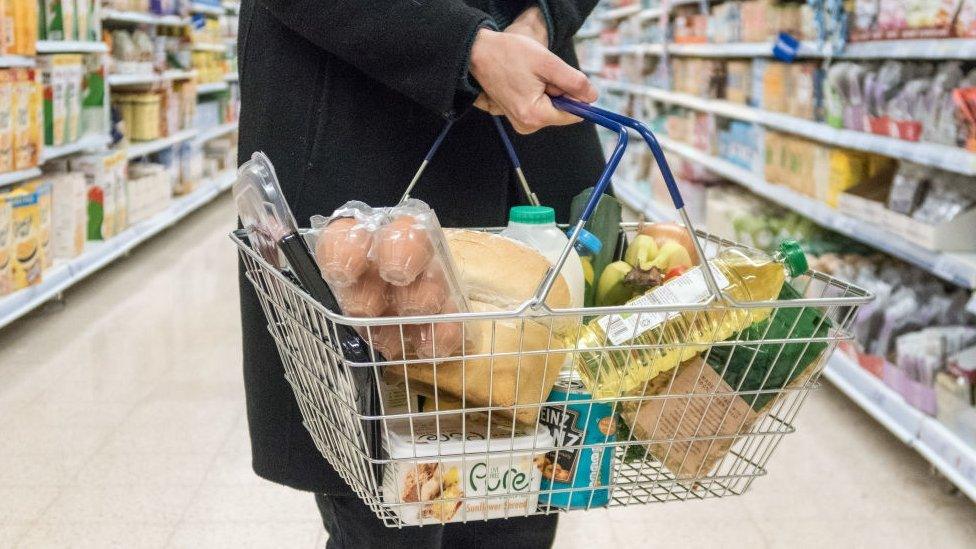
The Department for Environment, Food and Rural Affairs is recruiting for an EU Exit Emergencies Centre (EUXE) which will run 24 hours a day, seven days a week, to manage "any situations that arise if the UK leaves the European Union without a deal".
There are concerns too about what to do with excess fresh food and live animals produced in the UK if it cannot be exported in time.
Protests?
There have been concerns that some people - angry at a no-deal exit from the EU, or at the effects of that - will protest.
In a briefing to staff, the National Crime Agency wrote: "A no-deal exit is likely to result in significant short-term disruption across the country, which may manifest simultaneously across multiple areas and geographic locations."
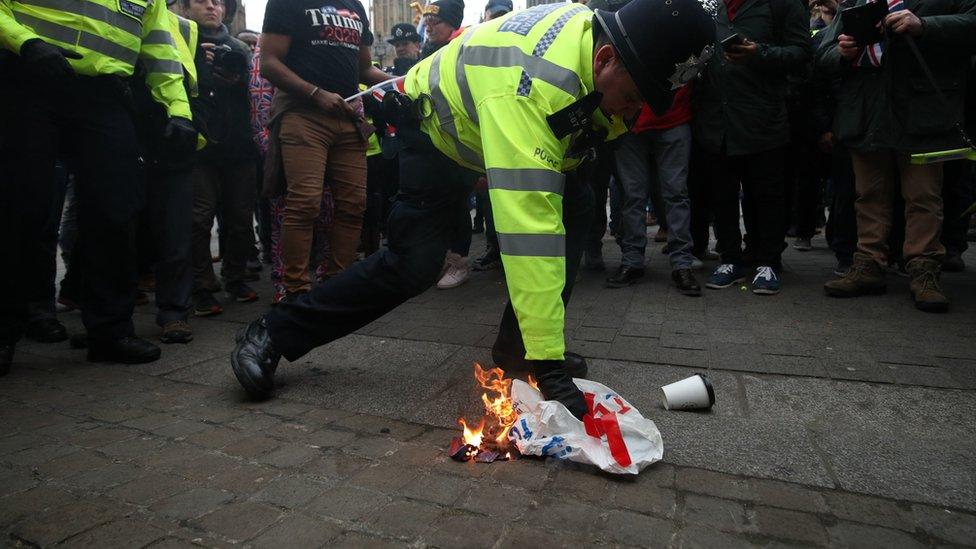
Protesters outside Parliament in January when MPs voted on the government's Brexit deal
The NCA said "wider potential impacts such as transport blockages, fuel and food shortages and protests/public disorder, could impact on officers both personally and professionally".
Some police forces have stopped officers taking leave for the first weeks after Brexit, though senior officers think the risk of disorder is low.
Crime
One of the effects of leaving the EU without a deal will be that British police officers will lose access to EU criminal justice tools such as the European Arrest Warrant (EAW), the European Criminal Records Information System (ECRIS), the Second Generation Schengen Information System (SIS II) and the European Investigation Order (EIO).
To handle the loss of these modern tools, the NCA - which communicates with overseas forces and Europol - has recruited 87 officers to use the much less effective Interpol system and to use other arrangements that are less automated and more labour-intensive.
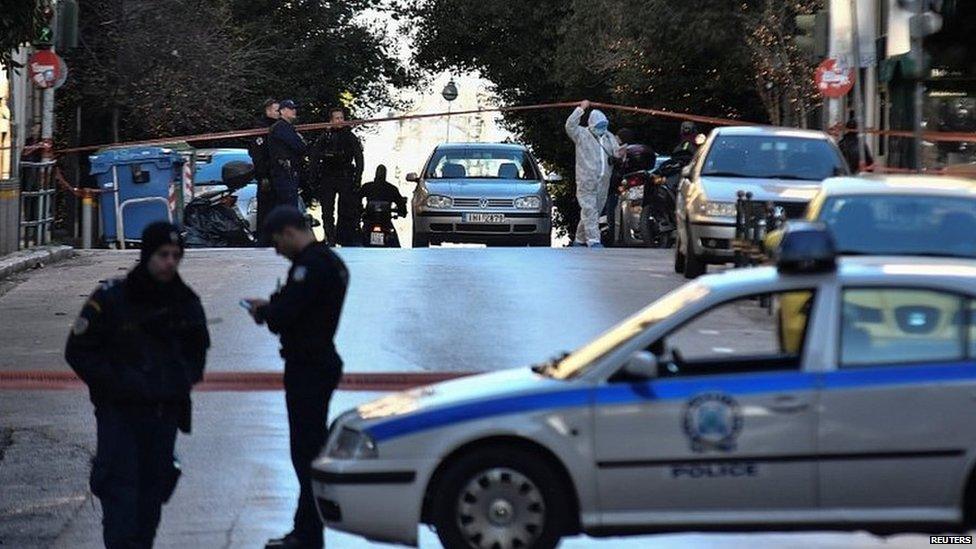
An International Crime Co-ordination Centre is being set up by the National Police Chiefs Council as part of what is being called Operation Safety Net to help forces with things like international manhunts and missing people inquiries.
Borders
To prepare for changes in immigration and customs at all points of entry into the UK, a Border Delivery Group has been established, chaired by Karen Wheeler, a senior official at HMRC.
The government has admitted that the UK's borders are likely to operate in a "sub-optimal" way if there is a no-deal Brexit.
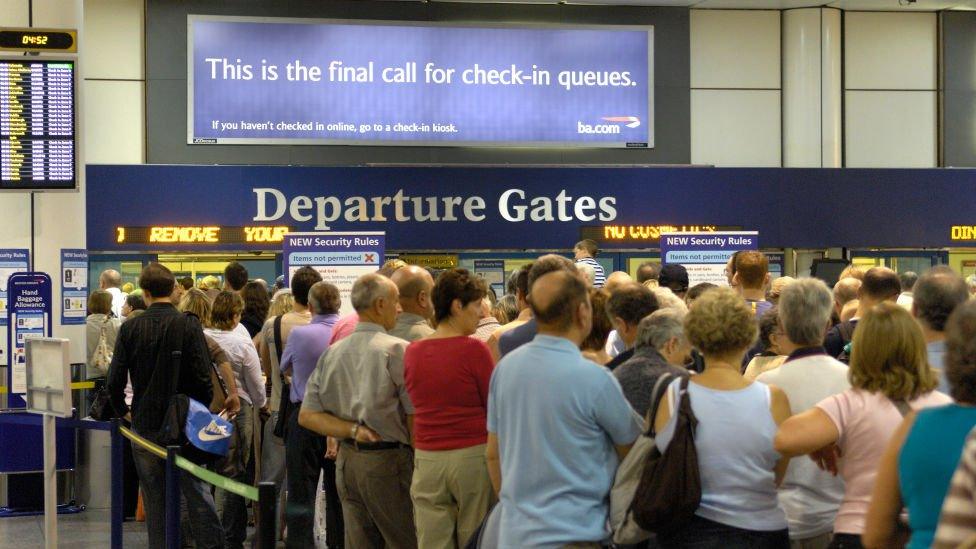
The Border Force has recruited about 300 officers to make up a "Readiness Task Force" to provide "operational resilience" and allow other staff to do EU-related training.
It is also recruiting a further 600 officers to make sure there are enough staff at the borders.
Fishing
In the event of no-deal, the UK will need to patrol its fishing waters much more extensively than it has for many years.
The Royal Navy has already reprieved three Fishery Protection Patrol ships that were due to be taken out of service.
It is preparing to provide 600 days a year of fishery protection, three times what it currently provides.
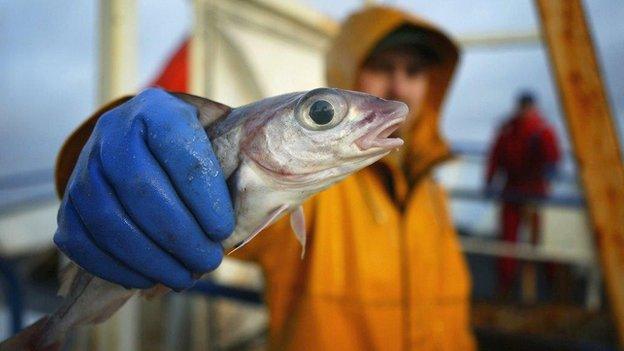
The Marine Management Organisation (MMO), which regulates the seas around Britain, is also to pay up to £40m to charter civilian ships to help them patrol fisheries over the next four years
The proposed contract - for up to four years - is due to start on 1 April.
It is to provide ships to help the MMO's Marine Enforcement Officers with a means of getting around the Exclusive Economic Zone (EEZ) in the seas around the UK. The contract says the ships must have a way of boarding other vessels.
- Published11 December 2020

- Published30 July 2019

- Published30 December 2020

- Published15 November 2018
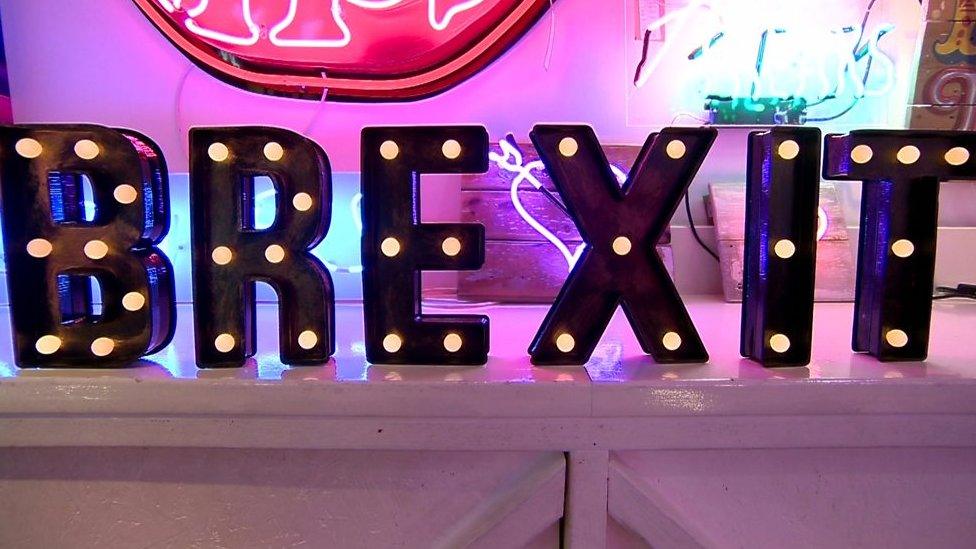
- Published3 August 2018
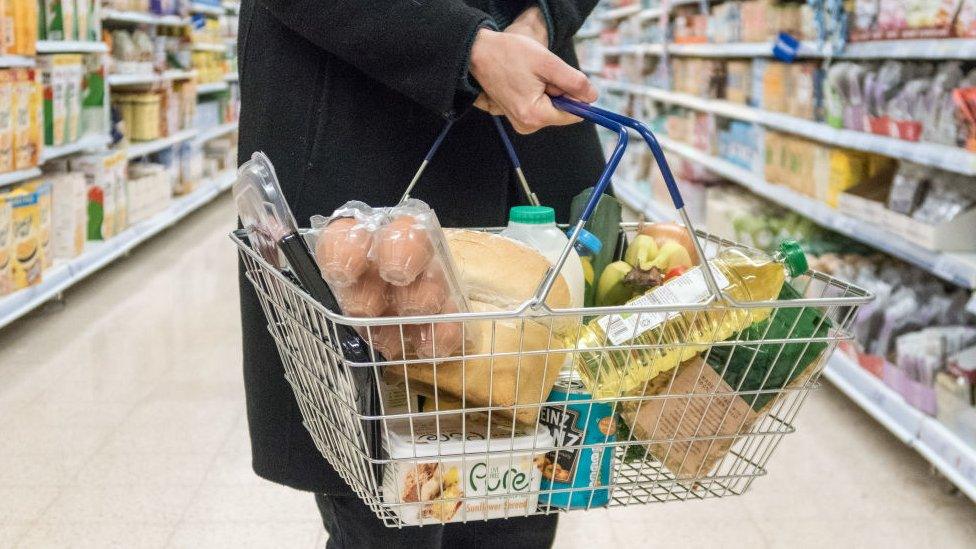
- Published23 October 2018

- Published9 November 2018
